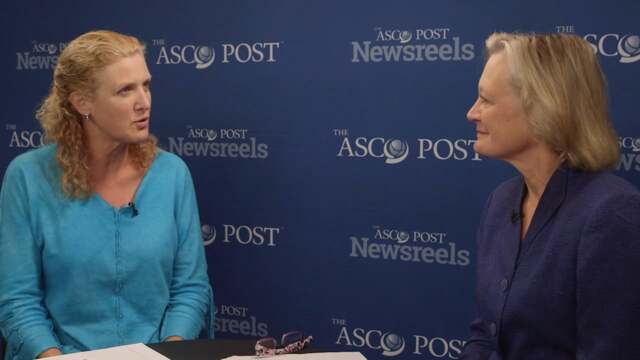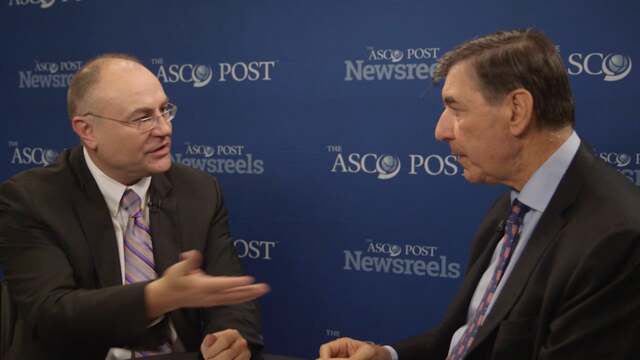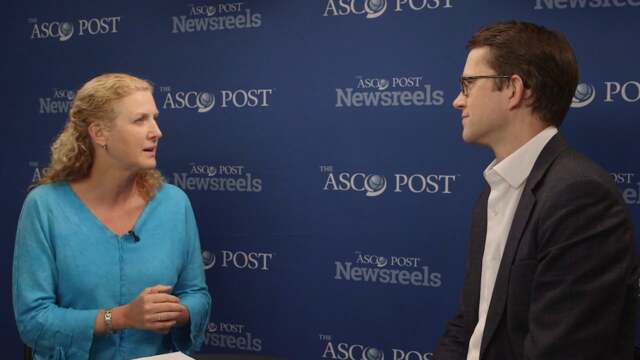Lee S. Schwartzberg, MD, on Progress of the Institute for Clinical Immuno-Oncology
2016 ASCO Annual Meeting
Lee S. Schwartzberg, MD, of The West Clinic, reports on progress of the now year-old ACCC initiative to speed adoption of immunotherapeutics in community practices.
Toni K. Choueiri, MD, and Paul L. Nguyen, MD, both of the Dana-Farber Cancer Institute, discuss four key studies on high- and intermediate-risk prostate cancer, as well as localized disease (Abstracts 5001, 5003, 5023, and 5021).
The
Lisa A. Carey, MD, of the University of North Carolina, and Julie Gralow, MD, of the University of Washington, discuss the most important data presented this year on treating breast malignancies (Abstracts LBA1, 500, and 507).
Heinz-Josef Lenz, MD, of the University of Southern California, and Marc Ychou, MD, of the Centre Régional de Lutte Contre Le Cancer, discuss study findings on FOLFIRINOX combined with targeted therapy according to RAS status for colorectal cancer patients with initially nonresectable liver metastases (Abstract 3512).
Lisa A. Carey, MD, of the University of North Carolina, and Nicholas C. Turner, MD, PhD, of The Royal Marsden Hospital and Institute of Cancer Research, discuss the efficacy of palbociclib plus fulvestrant in patients with ESR1 mutations in circulating tumor DNA, and palbociclib and letrozole for postmenopausal women with ER+/HER2–advanced breast cancer (Abstracts 507, 524).
Helen MacKay, MD, of the Sunnybrook Odette Cancer Centre, discusses findings from this phase II study of intraperitoneal vs intravenous chemotherapy following neoadjuvant chemotherapy and optimal debulking surgery in patients with epithelial ovarian cancer (Abstract LBA5503).





